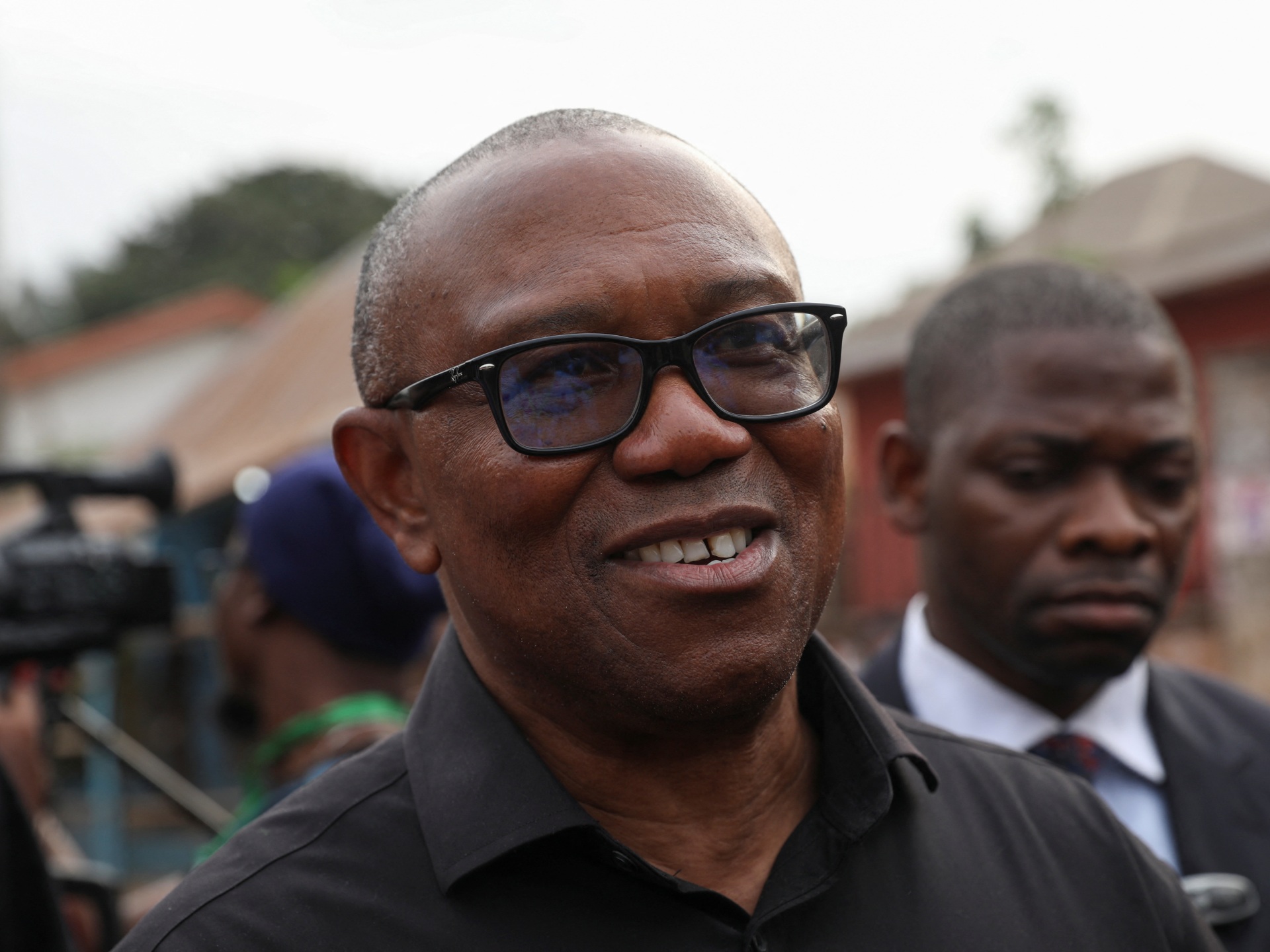Defeated candidate Peter Obi pledges to legally challenge the results a day after Bola Ahmed Tinubu was declared winner.
Abuja, Nigeria – Labour Party leader Peter Obi, the third-placed candidate in the Nigerian presidential election, has promised to challenge the result in court.
Bola Ahmed Tinubu of the governing All Progressives Congress (APC) was declared winner and president-elect on Wednesday, securing 37 percent of the vote. The main opposition People’s Democratic Party candidate Atiku Abubakar received 29 percent of the vote, while Obi garnered 25 percent of the vote, according to the Independent National Electoral Commission (INEC).
In his first public speech since the official results were announced, Obi said he would prove he had been robbed of victory and urged his supporters not to lose hope.
“The people of Nigeria have again been robbed by their supposed leaders whom they trusted … we will explore all legal and peaceful options to reclaim our mandate,” Obi said on Thursday afternoon in a news conference in the capital, Abuja.
“We won the election and we will prove it to Nigerians. Please do not despair.”
He did not provide any evidence to support his claims.
“We were asked to go to the court,” he continued while appealing for people to be peaceful and law-abiding. “Let’s go there … I will challenge this rascality for the future of the country. This is not the end but the beginning of the journey for the birth of a new Nigeria.”
In advance of Saturday’s vote, several polls had projected Obi, who is popular among young voters, as the winner of the election. Many pundits warned that the election would be so closely contested that a possible run-off seemed likely for the first time in Nigerian political history.
To be declared winner, a candidate must have a plurality of the popular vote and at least 25 percent of the vote in 24 of Nigeria’s 36 states and Abuja. Tinubu passed both criteria, eliminating the need for a second round.
Barring any decision to the contrary from the courts, Tinubu will be sworn in on May 29 as successor to outgoing President Muhammadu Buhari who has been in power since 2015.
Several observer missions criticised the election process after results were announced, noting that a new portal introduced for transparency and efficiency had done little to improve the process.
“INEC lacked efficient planning and transparency during critical stages of the electoral process,” said Barry Andrews, head of the European Union’s observer team. A coalition of Nigerian civil society groups said the election fell short of its “credibility threshold” and was “marred by very poor organisation … and several incidents of violence”.
Obi began the much-anticipated news conference by calling for a minute silence in honour of “all those who died during the electioneering process”.
The former governor of Anambra in southeast Nigeria said he and Baba-Ahmed were committed to contesting the results of the election which “did not meet the minimum standards expected” in court and was grateful to “the youths that believed and worked tirelessly for a new Nigeria”.
On Wednesday, Labour Party leaders held a joint news conference with their counterparts from the People’s Democratic Party and the African Democratic Congress (ADC), calling the election a “sham” and asking for its cancellation. They also demanded that INEC chief Mahmood Yakubu step down from his position for someone else “outside the commission” to conduct new elections.
But Obi, who said he was not consulting with or under pressure from the international community, said he was not part of any alliance in challenging the vote’s outcome. However, he urged all Nigerians eager to see a fair process to participate.
The Labour Party leader has had a history of lengthy litigation in his political career.
In 2006, the Supreme Court declared Obi the true winner of the Anambra governorship elections that were held three years previously. Current labour minister Chris Ngige, then of the PDP, was unseated from office.
Obi later secured a court victory establishing that his tenure began when he was sworn into office and not after the election was held; the decision has become a precedent in Nigeria’s political landscape and is the reason why governorship elections on March 11 will be conducted in only 28 states.
In 2007, the Supreme Court also reinstated Obi after he was impeached by the state parliament.
Sumber: www.aljazeera.com
 Skip to content
Skip to content

